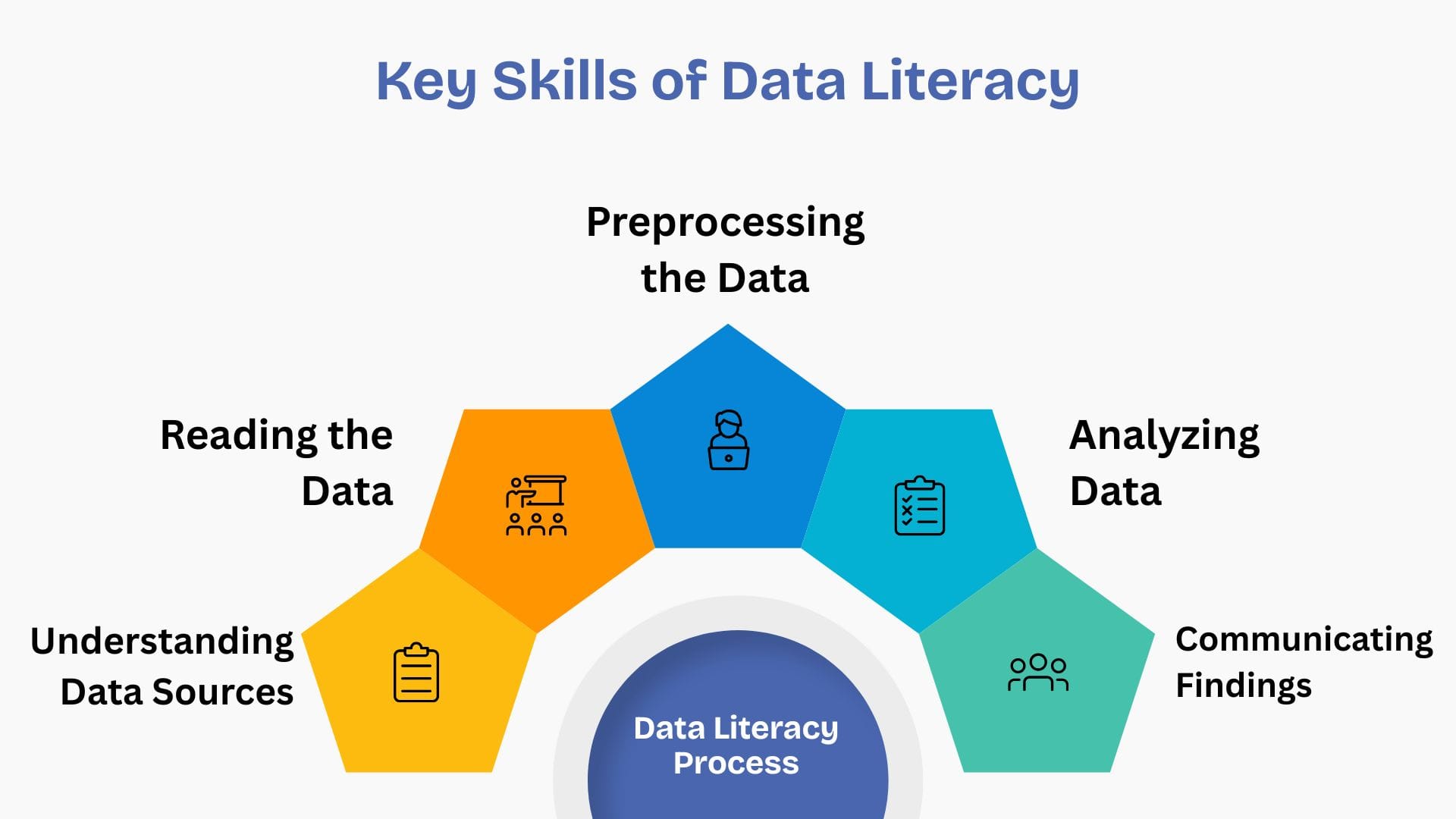Data Literacy
Understanding Data Literacy
In today’s world, we are constantly surrounded by data. Data plays a crucial role in shaping our lives, from the shopping lists we create to businesses’ decisions. However, with the rise of big data and the increasing availability of information, one crucial question arises: how well do we understand the data we encounter? This is where data literacy comes in.
What is Data Literacy?
Data literacy refers to reading, understanding, interpreting, and communicating data. It’s about more than just knowing how to use data tools; it’s about understanding what data means, how to use it to make informed decisions, and how to convey those findings effectively to others. In a nutshell, it’s the skill of thinking critically about data, making sense of numbers, and using them to tell a story.
With data becoming more integral to every aspect of our lives, data literacy is no longer a luxury; it’s a necessity. Whether navigating a school assignment, making business decisions, or understanding healthcare statistics, having the ability to interpret data is essential in today’s world.
Importance of Data Literacy
Data literacy’s importance extends beyond academia, influencing various facets of our personal lives, educational journeys, and professional careers. Let us examine this in more detail:
Personal Context: Consider the example of evaluating different health or fitness programs. Without the ability to interpret data effectively, one might misread statistics or base decisions on incorrect information. Data literacy empowers individuals to make well-informed choices regarding their health, finances, and everyday activities.
Educational Context: In the academic environment, students are increasingly required to engage with data in their research, projects, and assignments. Analysing and interpreting data accurately is crucial in producing high-quality academic work, ensuring the integrity and depth of the analysis.
Professional Context: Within the professional world, data literacy has become an indispensable skill across various industries. Professionals who can analyse and utilise data to guide decision-making tend to achieve greater career success. Whether in marketing, healthcare, education, or engineering, the capacity to discern trends, patterns, and metrics provides a significant competitive advantage.
Example: A marketing professional who understands how to interpret customer data and identify emerging trends is better positioned to devise effective strategies. Similarly, a healthcare worker with strong data literacy can make more accurate decisions by analysing patient data, improving patient outcomes.
Key Skills of Data Literacy
Data literacy goes beyond merely using software or comprehending statistical terminology; it encompasses developing essential skills. Below are the fundamental competencies required to attain data literacy:

Finally, in today’s data-driven world, data literacy has become an essential skill that significantly enhances our ability to make informed decisions, resolve challenges, and communicate with greater clarity. Whether personal matters, academic pursuits, or professional endeavours, comprehending and effectively utilising data can transform outcomes. Though the concept may appear daunting initially, anyone can develop data literacy with the proper tools and consistent practice. Therefore, I urge you not to delay—begin your journey into data literacy today and harness its transformative power in your life.
